Didya ever hear that nuts were a great source of protein?
What about custard? Would you consider a can of custard to be a great source of protein?
What if I told you that they BOTH contain the same amount of protein – about 12 grams – but in a high calorie package. When you compare that to the 20 g you might find in few slices of deli turkey meat, 1 1/2 cups cottage cheese or 5 ounces of shelled edamame for half the total calories – it’s not a lot.
Here’s the deal: front-of-packaging claims could make you believe one food is superior over another simply by what the manufacturer chooses to highlight.
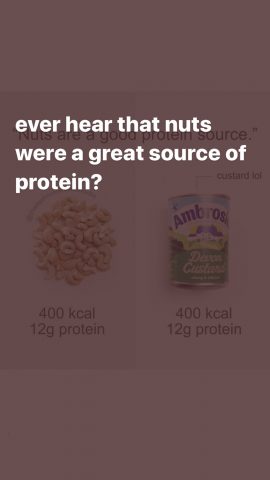
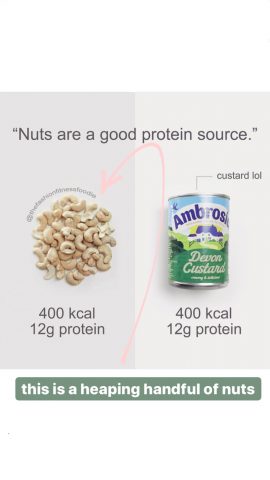
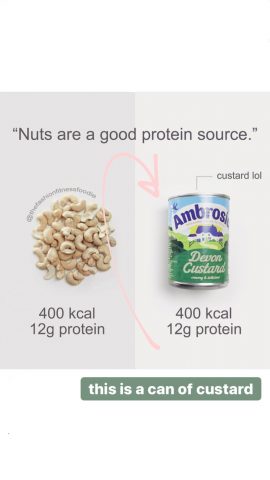
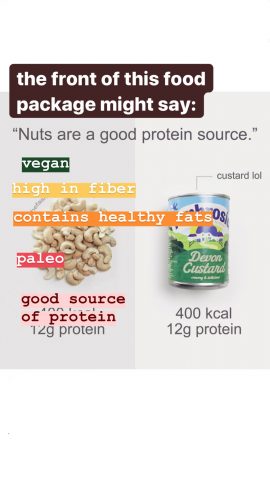

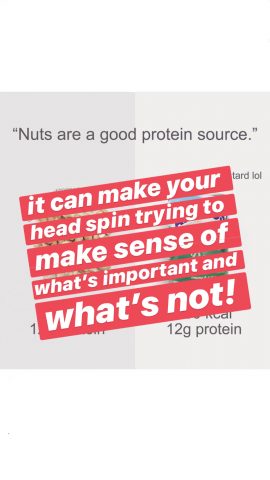
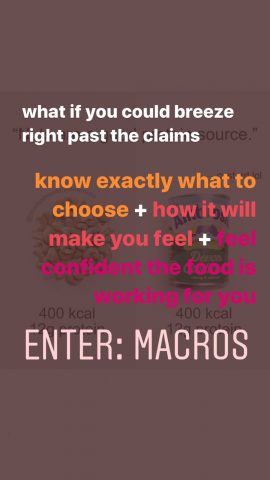
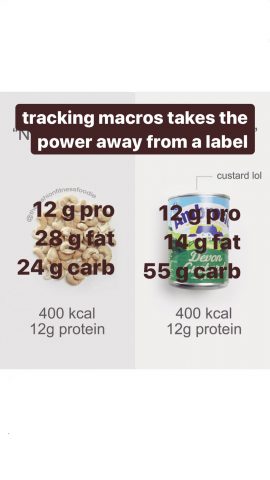
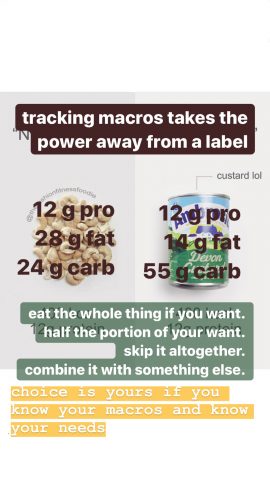

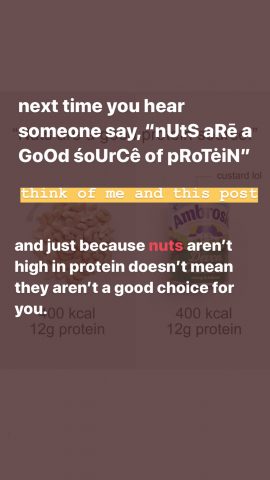
Aside from some fiber and micronutrient differences, both cashews and custard provide similar nutritional value. They’re both about 400 calories from 12 g of protein – but vary in carbohydrate and fat content. If you’re breezing past front-of-package claims to check out the ingredients, nutritional content and macronutrient balance, you can be absolutely confident that the food is right for you – personally.
That’s the power of tracking macros.
The macros approach takes the power away from inflammatory, front-of-package marketing claims. In this example, you’d know that just because nuts might not be high in protein doesn’t mean they aren’t a good choice for you. And similarly, just because custard isn’t high in protein doesn’t mean they aren’t a good choice for you. If you understand your personal macro targets and needs, you stand to take ownership in your food choices in a whole new way.
Pretty neat, right?
I made the images above (and taught a whole lesson with them!) on Instagram. Check out my account highlights section for more!

